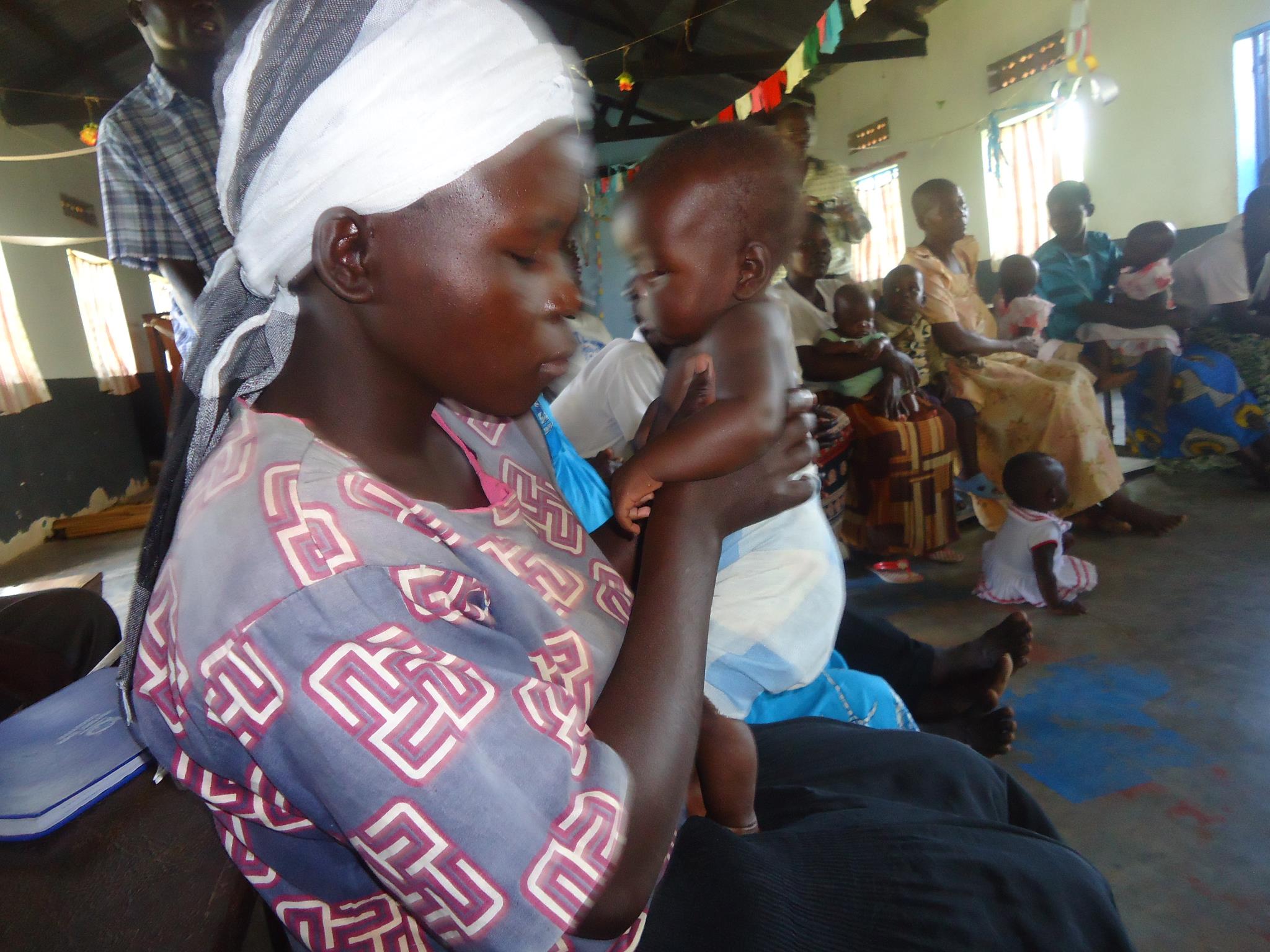It was about 10 AM on a bright Saturday morning when I visited Mr. Hussein’s household in a small village in Eastern Uganda. A father of 21 children, Mr. Hussein is a peasant farmer and one of the 3 productive members of his family – the other being his 2 peasant sons. I am certain that the mention of 21 children is no longer a surprise especially when talking about Fathering but these 21 kids came from one woman, the one I have come to believe deserves several medals. Yes, Alaso has given birth to 21 children, 16 of whom are still alive.
As one of the rare visitors in this home, I was swarmed by about 9 children with several others looking on with intent of grabbing some parts of my body to express their happiness – or maybe make an impression which would later lead me to let a gift out of my pocket. Husseins’ home can easily be mis-interpreted as a nursery school due to the large number of infants attributed to very poor family planning. Poverty can easily be smelled and seen as much as the suffering faced by the mother of 21 whom I got at home busy organizing a meal for the most famous household in this village.
Alaso narrated to me that she never got any opportunity of going to school and was sent for marriage at 15 years. Currently in her 40s, she became ‘a baby manufacturing machine’ who could only be seen among people at the time of receiving ANC services at the nearest health centre. “I am usually too busy taking care of children – cooking, collecting water, fire wood etc. I cannot afford to move out to do anything in the trading centre” she says. Her sister in-law, Amek, confirms that whenever Alasol is sighted in the trading centre, it means she has come to access ANC services or some sort of medication.
Alaso and several other rural women are shunning family planning alleging that several of their colleagues developed severe complications as a result. A list of women and stories of how they got very ill upon taking up family planning (Injectables and implants) was narrated to me and any attempts to convince the 3 ladies that I talked to were futile. The situation is exacerbated by the irresponsible men who have taken to producing children and having multiple partners as “a safety net” for their survival. Juma, one of the men in the same village as Hussein says that his 4 daughters will certainly make him “rich” in some time to come. He plans to get rich by collecting bride price for these girls as soon as they can get married off.
Due to the adverse shortage of health services, most rural women have faced the wrath of poor health systems in Uganda. The New Vision, Uganda leading Daily News paper published an Article on the 21st of February 2012 stating that out of 10,231 vacancies advertised for medical workers in August 2012, only 5,713 were recruited but 24% of those reported for duty at health centre IIIs and IVs citing lack of accommodation, poor working conditions and low remuneration. The Doctor to Patient Ratio in Uganda is very high at 1:15,000 leaving a huge gap that may never be filled any time soon.
Most of the few health workers who take up jobs at the lower level health units become frustrated and, according to Alaso, “torture their victims – the sick” as a way of transferring aggression. Alaso painfully explains how she lost several of her babies due to mismanagement of deliveries by the nurses. “Insults are hurled at mothers accompanied with physical harm and threats of killing your baby such that you deliver very first with minimal support from them – due to the fear”. This scares away Alaso and others from having safe supervised deliveries leading to other health complications.

Poverty is said to be relative and several measures have been brought forward to curb it. With many fathers (mostly peasant farmers) still competing for the social recognition attached to having large families, the MDG number 1 may hardly be met in some parts of the world in this generation. Therefore, one of the root causes of poverty – inadequate acceptance and access to family Planning services – must be tackled head on. If only Family Planning was talked about and given due attention as much as democracy, climate change, civil wars and the word of God, among other topics making rounds in the world news, poverty in the rural parts of Uganda would be dealt a big blow.
It is time to ‘hold the bull by its horns!’
